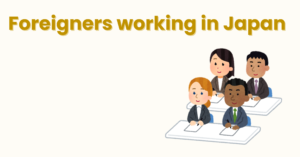Many travelers to Japan may have experienced being turned away at restaurants or other service venues, often without a clear explanation. If you’re curious about why this happens, keep reading for some interesting insights!
In most cases, the staff simply smile and say they cannot offer service, leaving no further explanation. In some instances, they may give reasons that are difficult to dispute. But wait—aren’t foreigners valuable customers? Why do some restaurants in Japan not allow foreigners? Here are the main reasons behind this:
1. Language Barrier
Many Japanese staff members do not speak English well. As a result, some stores or restaurants may feel that they are unable to provide adequate service in English. Those who have experienced arguments or disputes due to miscommunications in the past may be hesitant to risk such situations again.

2. How staff feels matters
While Japan upholds the “customer is king” philosophy, there is also a strong focus on staff well-being. Due to the country’s labor shortage, if employees feel stressed or uncomfortable because of language barriers, it could lead to higher turnover. As a result, some employers in Japan may prioritize staff comfort and avoid the risk of losing workers over mental pressures.
3. Language-Specific Services
Some services in Japan depend heavily on language skills. For example, in hostess bars (Kyabakura), the service revolves around conversation—drinking while chatting with guests. If a guest doesn’t understand or speak Japanese, it becomes difficult for the staff to offer the intended service.
4. Tacit
Some restaurants or stores in Japan have restrictions, not just for foreigners, but even for Japanese people. For example, some small, exclusive places only allow regular customers or those with connections to the owner. These businesses often prefer to maintain a close-knit clientele, and foreign customers can sometimes be seen as outsiders disrupting their established dynamic.

It’s important to note that this behavior isn’t necessarily rooted in racism or discrimination. More often, it’s about the discomfort Japanese people feel when they can’t communicate in English. The language barrier plays a central role here. Most tourists to Japan don’t speak Japanese well, which complicates communication. However, if you speak Japanese, your experience will likely be different.
Here’s an interesting example:
Recently, a restaurant in Kyoto made headlines for turning away guests who couldn’t speak Japanese. Instead of directly stating their preference, they cleverly filtered guests by using signs. The English sign said, “No Vacancy,” while the Chinese sign read, “不凑巧是满座 (Unfortunately, it’s full).” But the Japanese sign said, “この日本語が読める方は、ご入店くださいませ (Please enter only if you can read Japanese).” This subtle approach is a great example of how Japanese culture tends to avoid confrontation. They prefer to indirectly communicate their preferences rather than being direct or confrontational.

In this case, it’s not about discrimination based on nationality, but rather a preference for customers who can speak Japanese. While this might make some people uncomfortable, it reflects Japan’s conservative nature rather than any animosity toward foreigners.
Japanese people are generally conservative and prefer to avoid conflicts. For example, despite Japan’s powerful passport that allows visa-free access to many countries, only about 17% of Japanese people hold passports—the lowest rate among G7 countries. In contrast, more than 50% of Americans have passports. This reflects the inward-looking, cautious nature of many Japanese, who tend to live in their own cultural “bubble.”



